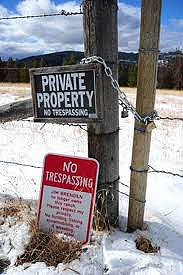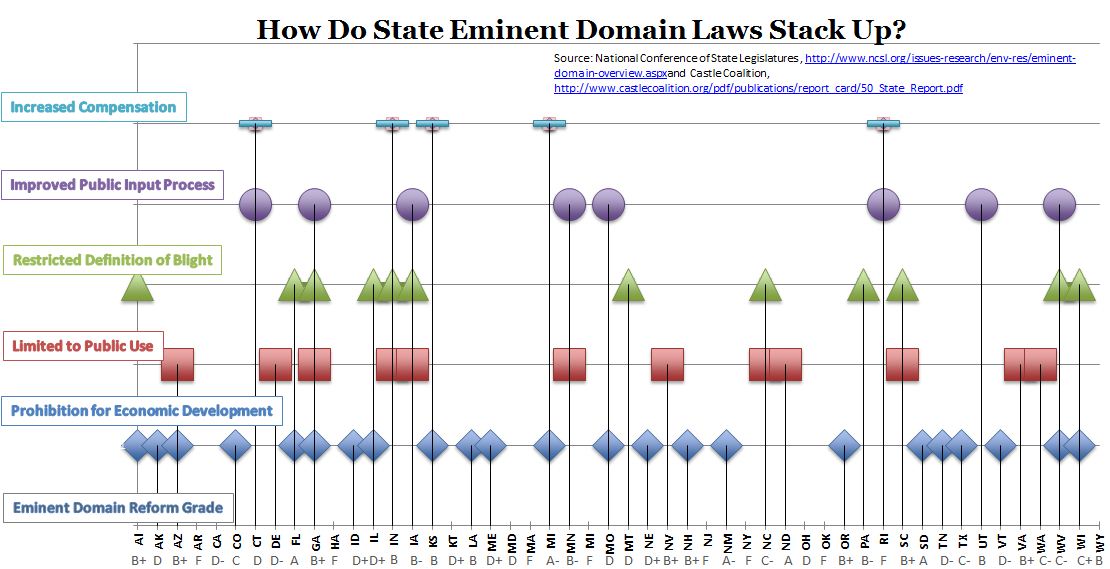
Kelo’s home and the surrounding neighborhood were pronounced blighted so the local government could provide the land to a local developer — for the public benefit, of course. The homes were razed with the exception of the little pink one that was moved to safety. Yet visions of a five-star hotel, health club and spa, office space, and upscale housing to complement the new (now gone) Pfizer headquarters remain a dream.
In a effort to protect her home, Kelo went all the way to the Supreme Court. The outcome was the 5-4 decision in Kelo v. New London in favor of handing private land from the poor to a wealthy developer. This is a present day Robin Hood story in reverse: taking from the poor to give to the rich. And it is happening all around us. Since 2005, at least 44 eminent domain abuse projects have been defeated. But more are on the books. To see a few condemnation projects in your neighborhood, see here and here.
The New London story is dismal. The forced surrender of homes and property did not bring the intended “public benefits” of fancy spas and storefronts, higher tax rolls, or employment. Instead, the 90-acre parcel remains vacant. The wealthy developer went broke and Pfizer moved on (see Jeff Benedict’s short video depiction of the Little Pink House here).
There is a silver lining. Since the 2005 case, 42 states have adjusted their eminent domain laws to better protect private property rights. While some states have done better than others (see chart below), using the coercive power of eminent domain to transfer private property to private owners has at least hit the radar.
If you value your property, liberty, and individual rights, think seriously about the role of government, its rights, and restrictions. Consider the words of James Madison: “That is not a just government, nor is property secure under it, where the property which a man has in his personal safety and personal liberty, is violated by arbitrary seizures of one class of citizens for the service of the rest.”
Cross-posted from Environmental Trends.



